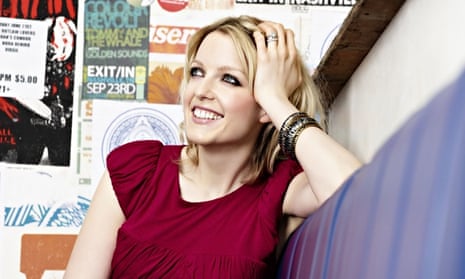The BBC has ruled itself out of funding digital radio switchover, saying the cost of the project could put at risk stations such as 6 Music.
The BBC has been one of the driving forces behind digital radio takeup, with a lineup of services including 6 Music – saved from the axe five years ago – and Radio 4 Extra (previously BBC7), each of which have more than 2 million listeners.
The BBC, in its response to the government’s green paper on the future of the corporation, published on Thursday, said: “Within the budget funding agreement, the BBC cannot fund the costs of such a switchover without significantly impacting services.
“It would be counter-productive for the BBC to be required to help fund switchover to a digital world from which it was simultaneously removing much-loved digital radio services.”
The cost of upgrading the nationwide transmitter network, only one aspect of the total cost of switchover, is estimated at between £40m and £45m a year.
The BBC said there was no room in its latest funding agreement, in which it took on the cost of free TV licences for the over-75s, to pay for radio switchover.
It added: “Further build out of the [digital audio broadcasting] networks to reach the same coverage as FM would be a major undertaking, likely to increase radio distribution costs by between £40m to £45m a year exclusive of any work to maintain the existing networks.
“We are not convinced of the value for money case for any further such investment, particularly while digital listening remains below 50%, with DAB listening only a proportion of that.”
Just under 40% of all radio listening is now via a digital platform, with the majority on DAB, alongside mobile, online, and digital TV. Digital switchover is not expected to begin in earnest until 2020 or beyond, several years later than had been originally anticipated.
The BBC said: “If the government proceeds with switchover, this will likely impose cost on some consumers and likely require marketing and communications effort by industry.
“The beneficiaries include commercial broadcasters, transmission providers, equipment manufacturers and other parties who may benefit from the analogue broadcast spectrum released.”
Just over £600m of licence fee money was allocated to help the elderly and disabled during digital TV switchover. The process was so successful that nearly half the fund was returned unspent, to fund broadband TV rollout and local TV.
About £40m of licence fee money has so far been spent on local TV, the brainchild of former culture secretary Jeremy Hunt, which has seen a spate of stations launch around the country including Evening Standard owner Evgeny Lebedev’s London Live.
The BBC said: “Some stations have shown signs of success. However, evidence of audience impact to date is limited and it would be hard to argue that the £40m of licence fee funding has, so far, delivered value for money.”

Comments (…)
Sign in or create your Guardian account to join the discussion